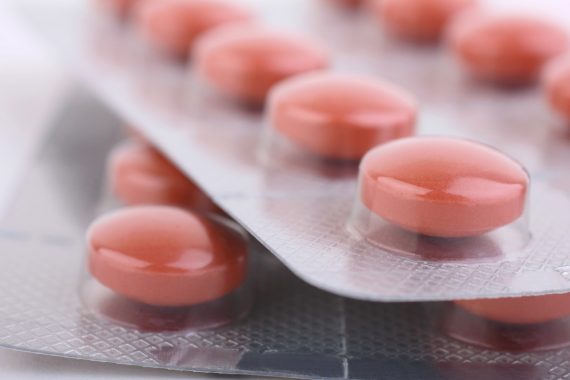Three hormone replacement therapy (HRT) drugs will be limited to be supplied for three months to mitigate shortages, the Government has announced.
The Department of Health and Social Care (DHSC) published a statement on Friday that said it had issued serious shortage protocols (SSPs) covering Oestrogel, Ovestin cream and Premique Low Dose.
These limit pharmacies across the UK to dispensing only three months’ supply of the medications at a time, but do not affect GP prescribing.
The DHSC said that the ‘urgent action’ will ‘ensure continued access’ to the HRT treatments.
It added: ‘In response to concerns regarding longer prescribing cycles putting pressure on availability of some HRT products, the Government has made the decision to issue SSPs to three products in high demand to ensure women are able to access the HRT they need.
‘This will even out distribution of demand for products such as Oestrogels, which have recently experienced issues due to rising demand. Pharmacists are expected to use their professional judgement when deciding to apply the SSP and patients must be consulted.’
What do the HRT SSPs mean for GPs?
The SSPs – which are set to expire on 29 July 2022 – apply to the following products:
- Oestrogel pump-pack 750mcg/actuation gel
- Ovestin 1mg cream
- Premique low dose 0.3mg/1.5mg modified release tablets
They allow community pharmacists to supply the three specified HRT products according to the protocol rather than the written prescription, without needing to seek authorisation from the prescriber.
SSPs came into force in 2019 through legislation that allows community pharmacists in England to provide appropriate alternatives to patients in the event of serious medicine shortages without having to go back to the patient’s GP for an updated script.
However, in this case, the SSPs ‘do not authorise pharmacists to dispense alternative products’, the DHSC said.
It added that ‘any woman who is worried about access to HRT or is unable to access HRT should speak to her GP’.
The DHSC said that demand for HRT has risen ‘dramatically’ by 38% over the last seven years because there is ‘greater awareness around the menopause and GPs are more confident in prescribing’.
But it added that supplies of the ‘vast majority’ of HRT products ‘currently remain available’, including alternatives to those affected by the SSPs.
The Government has also announced that from April 2023, women will be able to access HRT on a month-by-month basis via a prepayment certificate – a one-off charge equivalent to two single prescription charges, currently £18.70, for all their HRT prescriptions for a year.
Health secretary Sajid Javid said: ‘We will leave no stone unturned in our national mission to boost supply of HRT – and this next step will ensure women across the UK will be able to reliably access this vital medication and maintain this lifeline for millions who need it.’
The move follows the appointment of Covid vaccine taskforce director-general Madelaine McTernan to lead a new HRT supply taskforce, announced by the Government last week.
And it comes as the UK shortage of hormone replacement therapy (HRT) products has been attributed to an increase in media coverage of menopause and the circulation of social media posts.
The Government issued its first SSPs in 2019 to combat antidepressant shortages.
Pulse October survey
Take our July 2025 survey to potentially win £1.000 worth of tokens













